02 JULY 2020
Plant and seed exchanges to help achieve Food Security.
During the Covid-19 crisis Yakum staff have learned to what extent the Shuar, Kichwa, Siekopai, and Cofan
people have wandered away from their ancestral home gardens. Even up to the 1980’s, with widespread
colonization and petroleum production, traditional home gardens maintained by Kichwa, Shuar and
other nationalities, contained between 60-200 useful plant species and provided a comprehensive
nutritional profile, medicinal plants, and for dyes and ceremonial uses. Yakum staff have seen that home
garden diversity levels drop in direct relation to a community’s dependence on the outside money
economy.
The Cofan in Dureno who until Covid-19, had a successful aluminum canoe industry, community
eco-tourism program, and a very advanced handcrafts program for home use and sales, all of which
have disappeared, were the hardest hit of the four indigenous nations due to their dependence on
outside food. The Cofan had almost forgotten their home-garden traditions, having grown used to
purchasing foods outside of their community, and were quickly faced with widespread hunger.
Community sharing and exchanges of foods and plants, between individuals and families, is vital to
guarantee good nutrition, and generates community good will and shared culture. When a family grows
one crop to sell outside for profit, exchange opportunities disappear. Contrastingly, Yakum is more
focused than ever on working towards recuperating biodiverse home gardens. Socially binding,
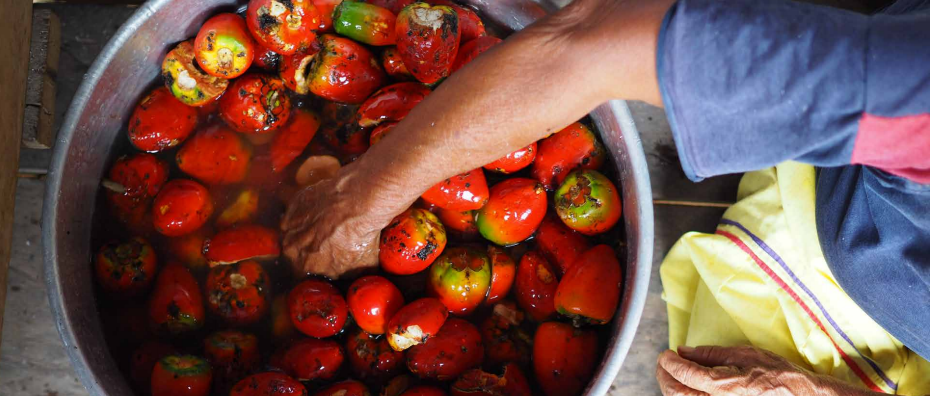
exchanges of food and food plants coming from species rich home gardens, can take many forms, can
be done in many ways. Seed, plant and food exchanges bring people together, provide for improved
diets, additional food species and varieties to grow, novel cultivation techniques, and tasty recipes for
food preparation. Returning to ancestral seed and food exchange has added benefits, including helping
achieve food security, reinforcing ancestral food production and family-unity and meal preparation
traditions , and contributing to genetic mixing within each species-important for conservation.
Each of the four nations have different preferred species of plants, and also grown very unique varieties
of widely used, staple, Amazon food plants, which if made available to everyone could help achieve food
security. For example the multi-use Chonta Palm produces fruits which varies widely across the amazon.
Clearly, each nationality has been selecting-for centuries-preferred traits in this super fruit. At one end
of the color and taste spectrum is the crimson colored Chonta of the Siekopai, which is high in healthy
oils, and with a deep-semi-bitter flavor. At the other end, is a white Chonta, more commonly found
among the Kichwa and Shuar and which is white and quite sweet to the tast. There are also intermediate
varieties which are red, green, yellow, orange or mixed in color, each of which has a distinct flavor.
Chonta is just one example of the many species of useful food plants which Yakum staff have diligently
collected, and transported across our four nation network.
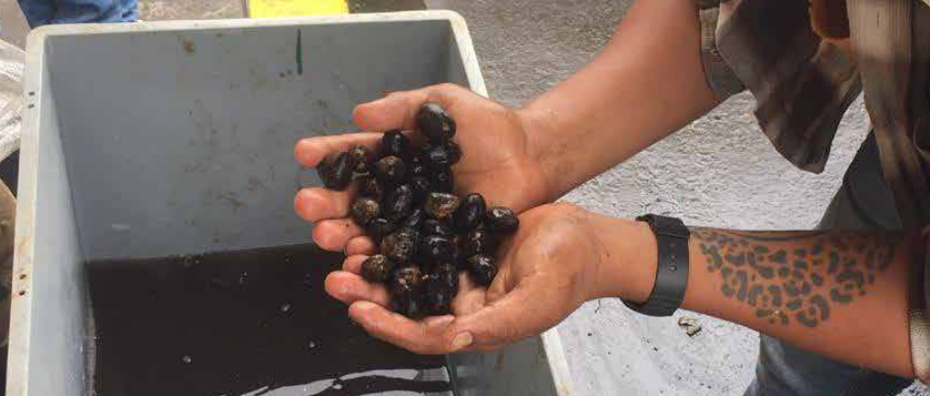
During over two years of community visits, Yakum has organized seed exchanges, requesting that
families bring seeds for their most productive plants to the meeting to exchange with other families, and
with Yakum. This has resulted in a mutually beneficial redistribution in perhaps a dozen species and
varieties of very useful and nutritious food plants for all everyone involved. Future Yakum plans include a
seed exchange congress where representatives of the four nationalities will provide instruction on all
aspects of growing their plants, including soil improvement methods, and instruction on harvesting and
preparing the food. Of course everyone will have a wonderful opportunity to eat some new nutritious
plants.
Other articles of interest
02 JULY 2020
Plant and seed exchanges to help achieve Food Security.
During the Covid-19 crisis Yakum staff have learned to what extent the Shuar, Kichwa, Siekopai, and Cofan people have wandered away from their ancestral home gardens. Even up to the 1980’s, with widespread colonization and petroleum production, traditional home gardens maintained by Kichwa, Shuar and other nationalities, contained between 60-200 useful plant species and provided a comprehensive nutritional profile, medicinal plants, and for dyes and ceremonial uses. Yakum staff have seen that home garden diversity levels drop in direct relation to a community’s dependence on the outside money economy.
The Cofan in Dureno who until Covid-19, had a successful aluminum canoe industry, community eco-tourism program, and a very advanced handcrafts program for home use and sales, all of which have disappeared, were the hardest hit of the four indigenous nations due to their dependence on outside food. The Cofan had almost forgotten their home-garden traditions, having grown used to purchasing foods outside of their community, and were quickly faced with widespread hunger.
Community sharing and exchanges of foods and plants, between individuals and families, is vital to guarantee good nutrition, and generates community good will and shared culture. When a family grows one crop to sell outside for profit, exchange opportunities disappear. Contrastingly, Yakum is more focused than ever on working towards recuperating biodiverse home gardens. Socially binding,
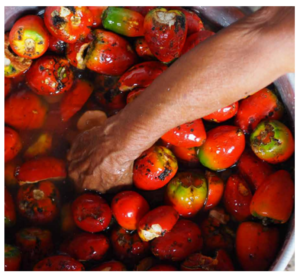
exchanges of food and food plants coming from species rich home gardens, can take many forms, can be done in many ways. Seed, plant and food exchanges bring people together, provide for improved diets, additional food species and varieties to grow, novel cultivation techniques, and tasty recipes for food preparation. Returning to ancestral seed and food exchange has added benefits, including helping
achieve food security, reinforcing ancestral food production and family-unity and meal preparation traditions , and contributing to genetic mixing within each species-important for conservation.
Each of the four nations have different preferred species of plants, and also grown very unique varieties of widely used, staple, Amazon food plants, which if made available to everyone could help achieve food security. For example the multi-use Chonta Palm produces fruits which varies widely across the amazon. Clearly, each nationality has been selecting-for centuries-preferred traits in this super fruit. At one end of the color and taste spectrum is the crimson colored Chonta of the Siekopai, which is high in healthy oils, and with a deep-semi-bitter flavor. At the other end, is a white Chonta, more commonly found among the Kichwa and Shuar and which is white and quite sweet to the tast. There are also intermediate varieties which are red, green, yellow, orange or mixed in color, each of which has a distinct flavor.
Chonta is just one example of the many species of useful food plants which Yakum staff have diligently collected, and transported across our four nation network.

During over two years of community visits, Yakum has organized seed exchanges, requesting that families bring seeds for their most productive plants to the meeting to exchange with other families, and with Yakum. This has resulted in a mutually beneficial redistribution in perhaps a dozen species and varieties of very useful and nutritious food plants for all everyone involved.
Future Yakum plans include a seed exchange congress where representatives of the four nationalities will provide instruction on all aspects of growing their plants, including soil improvement methods, and instruction on harvesting and preparing the food. Of course everyone will have a wonderful opportunity to eat some new nutritious plants.
Other articles of interest
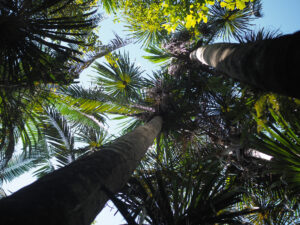
THE MORETE PALM
An Amazonian Keystone Palm Species.
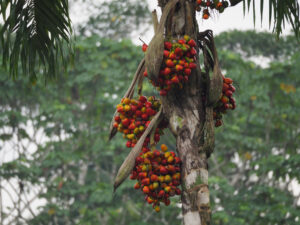
FOOD SECURITY
Seed Exchange for Food Security & Community Resilience.



